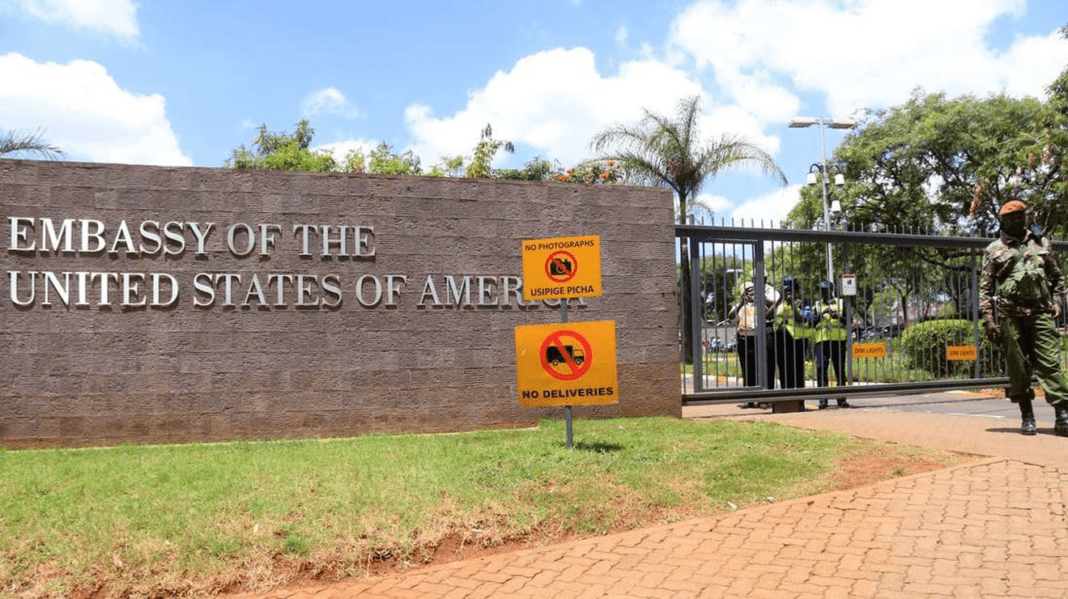The United States Embassy in Nairobi has issued a travel advisory, urging American citizens in Kenya to exercise heightened caution due to security risks, including crime, terrorism, civil unrest, and kidnapping.
In a statement released on Tuesday, March 18, the embassy warned that certain parts of the country pose a greater threat, advising against travel to specific regions.
“Exercise caution in Kenya due to crime, terrorism, civil unrest, and kidnapping. Some areas of the country have a greater risk,” read part of the advisory.
The embassy specifically cautioned US citizens against traveling to Garissa, Wajir, Mandera, and Tana River counties, citing threats of terrorism and kidnappings. West Pokot and Turkana counties were also flagged due to ongoing banditry attacks.
“Do not travel to Kenya-Somalia border counties (Garissa, Wajir, Mandera), Tana River County, and coastal areas north of Malindi due to terrorism and kidnapping.
“West Pokot and western Turkana County due to banditry. Parts of Marsabit and Turkana Counties within 30 miles (50 kilometers) of the Ethiopian border due to cross-border incursions,” the advisory stated.
Additionally, Nairobi’s Eastleigh and Kibera neighborhoods were listed as high-risk areas due to crime and kidnappings.
The embassy also highlighted the prevalence of violent crimes such as armed carjackings, muggings, home invasions, and kidnappings, warning that local law enforcement often struggles to respond effectively to serious security incidents.
“Violent crime, such as armed carjacking, mugging, home invasion, and kidnapping, can occur at any time. Local police often lack the capability to respond effectively to serious crimes and terrorist attacks. Emergency medical and fire services are limited. Avoid traveling after dark in Kenya due to crime and poor traffic safety,” the statement added.
Motorcycle thefts were also identified as a growing concern, with criminals using motorbikes to snatch belongings before fleeing the scene.
Furthermore, the embassy urged American citizens to remain vigilant in public places such as government buildings, places of worship, shopping malls, hotels, and schools, warning that such locations could be targeted by terrorists.







